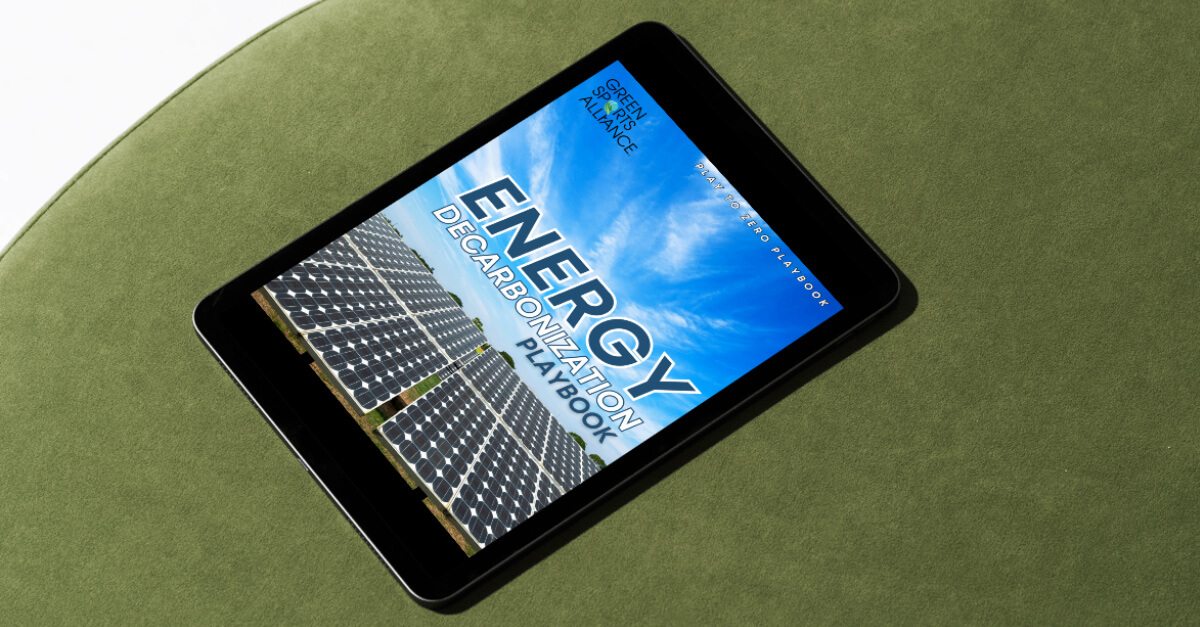Decarbonization
3R’s decarbonization services empower businesses to navigate the evolving landscape of sustainability and compliance with comprehensive solutions tailored to stakeholder expectations. Our service offerings deliver actionable roadmaps that mitigate operational risks and drive measurable value.
OPERATIONAL DECARBONIZATION (Scope 1 and 2)
Operational Decarbonization Planning for Scope 1 and 2 involves developing strategic, data-driven plans to reduce direct emissions (Scope 1) and indirect emissions (Scope 2).
ENERGY AUDITS
ASHRAE Level 1 and 2 energy audits involve systematic assessments of a building’s energy use, with Level 1 providing a high-level overview of inefficiencies and Level 2 offering detailed analyses and cost-benefit recommendations for energy-saving measures.
EMBODIED DECARBONIZATION
Embodied Carbon Consulting involves assessing and reducing the carbon emissions associated with the materials, construction, and lifecycle of a building.
RENEWABLE ENERGY STRATEGY
Renewable Energy Strategy Consulting involves evaluating and recommending tailored solutions for on-site and off-site renewables, Power Purchase Agreements (PPAs), virtual PPAs (vPPAs), and Renewable Energy Credits (RECs) to optimize energy procurement, reduce carbon footprints, and align with climate and decarbonization goals.
ENERGY MODELING
Energy modeling for existing facilities involves creating a digital simulation of a building’s energy performance to analyze consumption patterns, identify inefficiencies, and optimize systems for enhanced sustainability and cost savings.
MEASUREMENT AND VERIFICATION
Measurement and Verification is a systematic process to accurately assess and validate the performance of energy efficiency measures, ensuring that implemented strategies achieve projected energy savings and sustainability goals through rigorous data collection and analysis.
Partner with 3R’s Experts
We don’t just prioritize technical compliance; our team of experts focuses on the business case, ensuring every decision aligns with your financial and environmental goals. From meeting large customer demands to integrating renewable energy, we craft strategies that transform operational realities, reduce environmental impact, and position your organization as a leader in the low-carbon future.

Our services
OPERATIONAL DECARBONIZATION (Scope 1 and 2)
Operational Decarbonization Planning for Scope 1 and 2 involves developing strategic, data-driven plans to reduce direct emissions (Scope 1), arising from fuel combustion, refrigerant leaks, and other industrial processes that occur onsite, and indirect emissions (Scope 2), arising from purchased energy, aligning operations with net-zero goals through efficiency, electrification, and renewable energy integration.

Delivers Value Through
Significant Emissions Reduction: Targets and mitigates Scope 1 and 2 emissions, potentially cutting GHG output through optimized processes, equipment upgrades, and clean energy adoption.
Cost Efficiency: Identifies energy-saving measures and renewable energy options that lower operational costs while advancing decarbonization objectives.
Regulatory Compliance: Ensures alignment with evolving climate regulations and carbon reporting standards, reducing risks of penalties or reputational damage.
Stakeholder Appeal: Enhances corporate sustainability performance, attracting investors, customers, and talent who prioritize sustainability and climate action.
Operational Resilience: Strengthens long-term business viability by reducing dependence on fossil fuels and preparing for carbon-constrained markets.
EMBODIED DECARBONIZATION
Embodied Carbon Consulting involves assessing and reducing the carbon emissions associated with the materials, construction, and lifecycle of a building, from extraction to disposal, to minimize environmental impact and support sustainable design and decarbonization goals.

Delivers Value Through
Reduced Environmental Impact: Lowers the carbon footprint of construction by selecting low-carbon materials and processes, potentially cutting embodied emissions by 20-40%.
Sustainable Material Choices: Guides the selection of eco-friendly materials, such as recycled or bio-based options, aligning with certifications like LEED and BREEAM.
Cost Optimization: Identifies cost-effective strategies for reducing embodied carbon, balancing upfront investments with long-term savings and value.
Enhanced Sustainability Credentials: Strengthens sustainability profiles, appealing to stakeholders and supporting compliance with green building standards and climate goals.
Future-Proofing Projects: Mitigates risks from tightening carbon regulations and market shifts toward low-carbon construction, ensuring long-term project viability.
ENERGY MODELING
Energy modeling for existing facilities involves creating a digital simulation of a building’s energy performance to analyze consumption patterns, identify inefficiencies, and optimize systems for enhanced sustainability and cost savings.

Delivers Value Through
Cost Savings: Pinpoints energy-saving opportunities, allowing accurate estimations of cost impact through design choices, targeted retrofits, and system optimizations.
Improved Performance: Enhances building efficiency by identifying underperforming systems, leading to better operational reliability and occupant comfort.
Decarbonization Support: Provides data-driven insights to reduce carbon emissions, aligning with sustainability goals and regulatory requirements.
Risk Mitigation: Anticipates operational risks by modeling scenarios, ensuring resilience against rising energy costs or equipment failures.
Informed Decision-Making: Offers a clear business case for upgrades, prioritizing investments with the highest return on energy and financial savings.
ENERGY AUDITS
ASHRAE Level 1 and 2 energy audits involve systematic assessments of a building’s energy use, with Level 1 providing a high-level overview of inefficiencies and Level 2 offering detailed analyses and cost-benefit recommendations for energy-saving measures.

Delivers Value Through
Cost Reduction: Identifies low-cost and high-impact energy conservation measures, potentially reducing energy expenses by 15-30% through targeted improvements.
Actionable Insights: Level 2 audits deliver detailed data and financial analysis, enabling prioritized implementation of upgrades with clear payback periods.
Sustainability Alignment: Supports decarbonization goals by uncovering opportunities to reduce energy consumption and greenhouse gas emissions.
Regulatory Compliance: Helps meet local energy codes and corporate ESG requirements, avoiding penalties and enhancing stakeholder trust.
Enhanced Building Performance: Improves system efficiency and occupant comfort by addressing inefficiencies in HVAC, lighting, and other critical systems.
RENEWABLE ENERGY STRATEGY
Renewable Energy Strategy Consulting involves evaluating and recommending tailored solutions for on-site and off-site renewables, Power Purchase Agreements (PPAs), virtual PPAs (vPPAs), and Renewable Energy Credits (RECs) to optimize energy procurement, reduce carbon footprints, and align with climate and decarbonization goals.

Delivers Value Through
Carbon Footprint Reduction: Enables significant GHG emissions reductions by integrating renewable energy sources, supporting corporate climate commitments, and decarbonization plans.
Cost Stability and Savings: Secures predictable energy costs through PPAs and vPPAs, often reducing long-term expenses compared to volatile fossil fuel markets.
Customized Solutions: Provides a tailored mix of on-site solar, off-site wind, or RECs, ensuring alignment with facility needs, budget, and sustainability goals.
Enhanced Sustainability Performance: Strengthens environmental, social, and governance credentials, attracting investors and customers who prioritize sustainable practices.
Risk Mitigation: Diversifies energy portfolios, reducing reliance on non-renewable sources and enhancing resilience against regulatory changes or energy price spikes.
MEASUREMENT AND VERIFICATION
Measurement and Verification (M&V) is a systematic process to accurately assess and validate the performance of energy efficiency measures, ensuring that implemented strategies achieve projected energy savings and sustainability goals through rigorous data collection and analysis.

Delivers Value Through
Verified Energy Savings: Confirms actual energy reductions, ensuring projects deliver promised savings.
Performance Accountability: Provides data-driven evidence to stakeholders, enhancing trust and supporting compliance with certifications like LEED or energy performance contracts.
Optimized System Performance: Identifies discrepancies in energy systems, enabling fine-tuning to maximize efficiency and occupant comfort.
Risk Reduction: Mitigates financial and operational risks by ensuring energy-saving measures perform as expected, protecting investments.
Informed Future Investments: Supplies accurate performance data to guide strategic decisions for future retrofits or decarbonization initiatives.

Energy Decarbonization Playbook
3R’s energy, climate, and built environment experts worked closely with the team at Green Sports Alliance (GSA) to develop the GSA Playbook: Decarbonizing Energy in Sports and Entertainment Venues—an open-source guide to decarbonization for sports and entertainment venues.
The Playbook features:
- Frameworks and methodologies to minimize carbon footprints specific to the sports and entertainment industry
- Actionable recommendations from experts on how venues can reduce their greenhouse gas emissions
- Real-world case studies that demonstrate solutions, opportunities, and challenges that venues may face on their decarbonization journey









